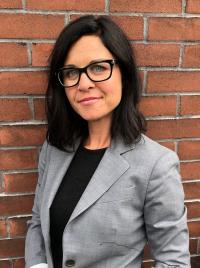
Dr. Howe is a Surgeon-Scientist who has trained at the University of Toronto (MD) and McMaster University (PhD, FRCSC). Her research program focuses on the role of endothelial activation on microRNA regulation in atherosclerosis. While in the Leeper lab during a mini-fellowship at Stanford University, Dr. Howe became interested in the role of cellular communication within atherosclerotic plaques and efferocytosis (‘clearance of the dead’), a process that is dysregulated in vulnerable lesions. Her research question “Does endothelial activation lead to defective efferocytosis via altered microRNA secretion?” will use model systems as well as human tissue from the Peter Munk Cardiac Centre Biobank. Her ultimate goal is to find regulators of atherosclerosis for development of innovative strategies for improved screening tools, risk assessment, and intervention in advance of devastating clinical events such as stroke and myocardial infarction.




 https://orcid.org/0000-0002-6519-2280
https://orcid.org/0000-0002-6519-2280